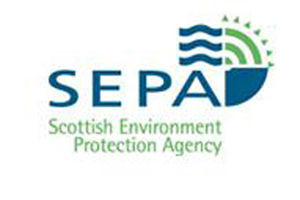
FINES totalling £153,125 were handed down to companies and individuals in the last financial year for criminal cases instigated by Scotland’s environment watchdog.
The figures are revealed in the Scottish Environment Protection Agency’s (SEPA) Enforcement Report 2010-2011, which was published today.
The report also revealed that during 2007-2010 139 cases were referred to the Procurator Fiscal by SEPA, with 75% of these resulting in convictions and a further 7.5% in warning letters or fines.
Calum MacDonald, SEPA’s Director of Operations, said: “We have a good level of compliance with operators across Scotland, and I believe that, in most cases, working with operators to raise their awareness of environmental requirements will achieve the desired outcomes and protect the environment. However, as these figures show, SEPA will not shy away from using our formal enforcement tools where necessary. ”
Last year SEPA referred 37 cases to the Procurator Fiscal, issued 93 statutory notices and sent out 143 final warning letters.
Prosecutions under the waste and water regimes made up 95% of the cases reported to the PF, with breaches of Pollution Prevention and Control (PPC) Regulations making up 5%.
Mr MacDonald, continued: “Ideally we would like to see the number of prosecutions fall, every one means that ultimately something went wrong, and Scotland’s environment has been put at risk. However, we need everyone to understand, whether they are multi-national organisation or an individual, that SEPA is here to protect the environment for everyone. If the advice and help that our officers give is ignored, we will take whatever action is required, including prosecution if necessary.”
“One SEPA-instigated prosecution concluding last year resulted in a £90,000 fine. I was pleased to note the High Court of Justiciary stating in this case ‘A fine in a case such as the present [. . .] requires to be large enough to bring the message home to those who manage and are shareholders in companies like the present that the statutory provisions designed to protect our environment must be taken seriously by them.”

